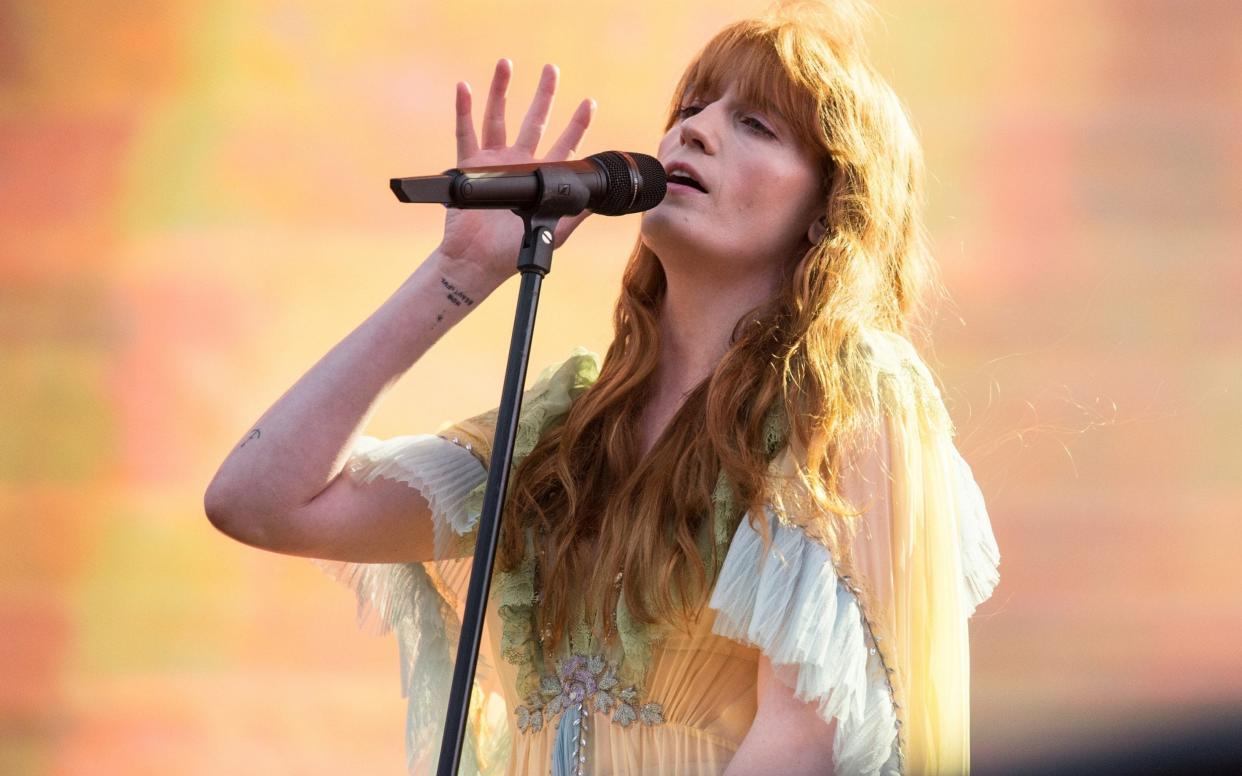Florence and the Machine, Hyde Park review: flying the flag for 'the matriarchy' with poise, power – and a faultless voice

“Welcome to the matriarchy! It’s fun!” cooed Florence Welch, gleefully interrupting her headlining Barclaycard British Summer Time set. Her performance crowned a day that boasted, the 32-year-old told us, a 70 per cent female line-up; a wild and beautiful oddity in the music festival landscape.
She had a point: while Welch, who is better known by the name of her indie-pop vehicle Florence + The Machine, headlined BST in 2016, this Hyde Park festival has been relentlessly male over the six years it has existed. It has been defined by ageing rockers (Neil Young and Bob Dylan played the night before) and machismo-laden bands (Rolling Stones, The Libertines), rather than a woman known for her ethereal voice and lovelorn melodies. The kind of artist who brings a harpist on stage with her.
Not that Welch is unused to crowds of 65,000 and up – three years ago she headlined Glastonbury, filling in for the Foo Fighters. But this performance was rather less ribald than that, less hedonistic. Which probably had something to do with the surroundings – Central London is not in a valley in Somerset – and something to do with Welch growing up a bit.
Last summer, she released High as Hope, an album that cut to the bone with its stories of eating disorders, sororal regret and getting high. A month ago, she wrote in Vogue that she never imagined she would even reach her Thirties, so self-destructive was her existence.
And so here Welch was, all poise and composition and tulle fading from blue to yellow, like the dusky mackerel skies above. A decade after her debut album, that voice, which erupts with volcanic power from the lightest of soprano whispers, remains faultless. What’s more, it seemingly does so effortlessly. Welch delivers aerobic glissando as if it were a funny story in a pub with good friends; it sort of just falls out, and everyone is left to look on, agape.
It was strange, and at times moving, to hear her domestic narratives of love and loss given such grand standing. The young women I was surrounded by were drunk and tearful in equal measure – perhaps like a teenage Welch – and knew every single searing word from recent songs such as Hunger.
One wondered if this, Welch’s largely female-directed show, was as satisfying to those at the back, though. The screens were filled not with footage of her on stage, but a cinematic mish-mash of flowers and videos of her from other places entirely. Welch span and shoulder-popped, barefoot as ever, and sometimes it felt as if she were alone, in her bedroom, and we were all watching on dispassionately rather than joining in.
But of course the moments of communion arrived – and shimmered when they did. She crowdsurfed during Kiss with a Fist, not heard on stage since 2015, turning the park into the scuzzy pubs the song emerged from. And during Dog Days are Over, Welch managed to get everyone to put their phones away, encouraging a freewheeling dance party of thousands. An army of girls were lifted up on shoulders, blocking out the stage. Welcome to the matriarchy, indeed.

